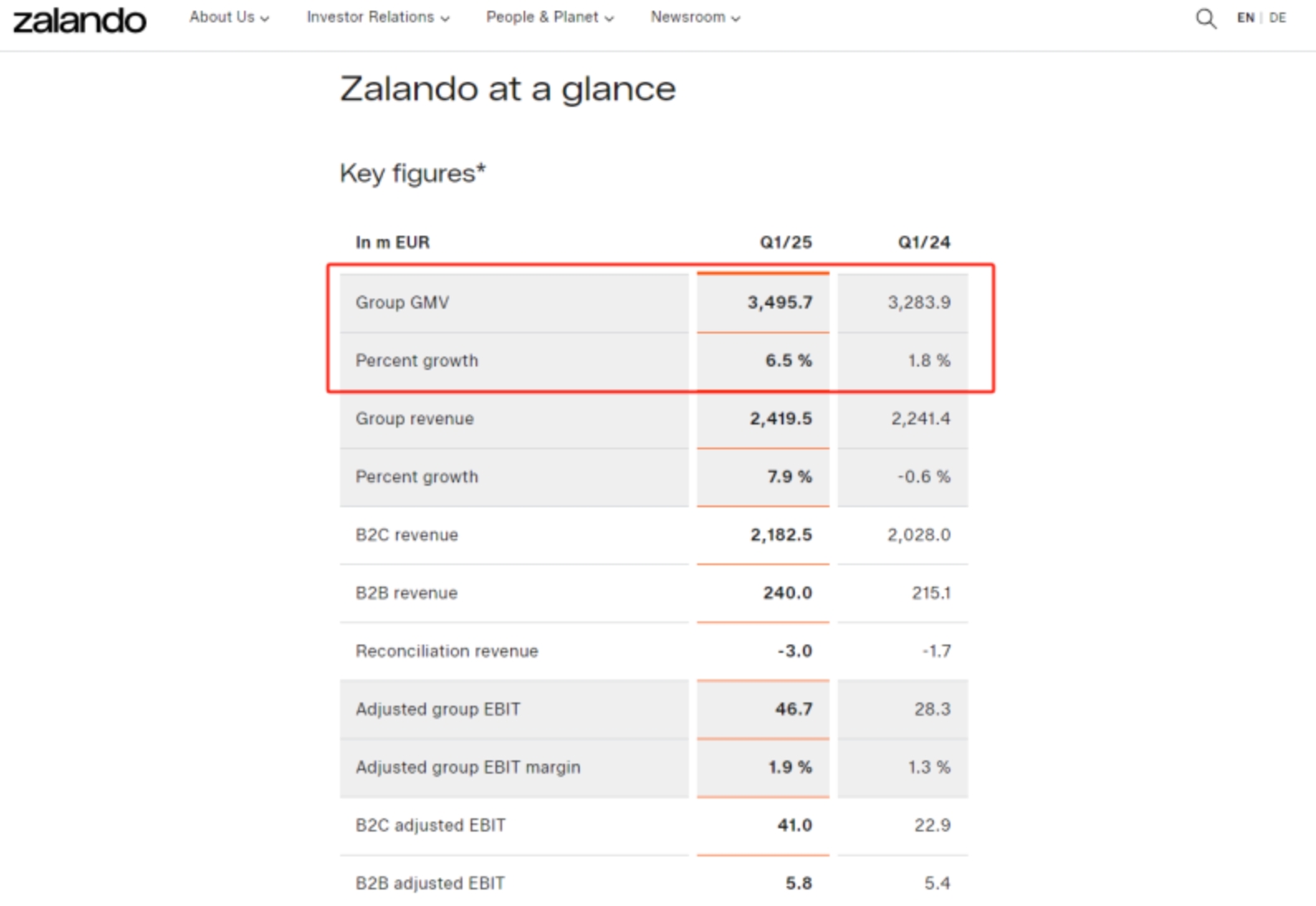本文来自微信公众号:刘言飞语(ID:liufeinotes),作者:刘言飞语,原文标题:《论大部分工作的 bullshit 性》,头图来自:视觉中国
关于 Bullshit Jobs,这些年陆陆续续能听到很多讨论。之前在知乎上看到过有人分享,最近一次,是在播客《Blow Your Mind》的 S02-273 期里。主播 brofeng 是斯坦福 MBA 毕业,深谙咨询公司的那些 bullshit 的部分,讲起来很有力道,听有收获。
这个概念的提出其实挺早的,是在 2013 年由 David Graeber ,伦敦经济学院的人类学家,也是占领华尔街运动的发起人之一,提出的。他在一本杂志《STRIKE!》上写了篇短文《On the Phenomenon of Bullshit Jobs: A Work Rant》,引起在美国的热议。2018 年出了本书,加入了更多论证,就叫《Bullshit Jobs:A Theory》。他在去年不幸离世,这本书就成了遗作。
中文互联网世界里,有关于这个概念的讨论,也有看到很多采访资料,但唯独故事开始的那篇短文《On the Phenomenon of Bullshit Jobs》,好像信息不多。于是我怀着好奇心,翻译了下,分享出来。
你会发现,这些论述放到时至今日的许多人的工作中,还是一点儿都不过时。其中一个段落说,正因为很多“新产业”的人很忙没有时间,同时就又制造了更多的“新产业”,这说的不正是经常见到的魔幻现实吗?更多人加班,就有更多人需要点外卖,就更需要外卖平台和配送系统,就要更多人加班...... 想到了张博洋曾经讲过的那个脱口秀了。
为什么科技发展到现在,工作时间反而越来越长,而不是越来越短?为什么大组织经常有奇奇怪怪的工作,搞不清在做什么,拿的工资却很高?为什么职业经理人看似没有真正的专业能力,却能获得很高的社会地位?David Graeber 给的这些分析可以做一定参考。
如果你也在做 bullshit job,或有启发。
In the year 1930, John Maynard Keynes predicted that, by century's end, technology would have advanced sufficiently that countries like Great Britain or the United States would have achieved a 15-hour work week. There's every reason to believe he was right. In technological terms, we are quite capable of this. And yet it didn't happen. Instead, technology has been marshaled, if anything, to figure out ways to make us all work more. In order to achieve this, jobs have had to be created that are, effectively, pointless. Huge swathes of people, in Europe and North America in particular, spend their entire working lives performing tasks they secretly believe do not really need to be performed. The moral and spiritual damage that comes from this situation is profound. It is a scar across our collective soul. Yet virtually no one talks about it.
1930 年,凯恩斯预言在世纪末,科技会有长足进步,英国、美国这样的国家,每周可以只工作 15 个小时。从技术发展而言,这完全有能力实现。但其实并没有发生。
相反的,技术在一定程度上让我们在做更多工作。无意义的工作被制造出来。大量的打工人,尤其在欧洲和北美,把自己所有的职业生涯的工作,都用来完成自己都不相信有必要做的事情。这种境况造成了大量道德和精神的伤害,成为我们集体灵魂中的一道疤痕。但实际上居然没人在聊这事儿。
Why did Keynes' promised utopia—still being eagerly awaited in the '60s—never materialise? The standard line today is that he didn't figure in the massive increase in consumerism. Given the choice between less hours and more toys and pleasures, we've collectively chosen the latter. This presents a nice morality tale, but even a moment's reflection shows it can't really be true. Yes, we have witnessed the creation of an endless variety of new jobs and industries since the '20s, but very few have anything to do with the production and distribution of sushi, iPhones, or fancy sneakers.
为什么凯恩斯预言的乌托邦——在 60 年代被殷切期待——根本没有出现?今天的标准回答应该是,他没有想到消费主义的汹涌增长。在更少的工作时间,和更多的玩物和快乐中,我们都选择了后者。这是一个很棒的道德寓言,但多想一想就知道并非事实。是的,我们目睹了没完没了的新工作、新产业在 20 世纪出现,但是很少有跟寿司、iPhone 和潮鞋的生产销售有关系的。
So what are these new jobs, precisely? A recent report comparing employment in the US between 1910 and 2000 gives us a clear picture (and I note, one pretty much exactly echoed in the UK). Over the course of the last century, the number of workers employed as domestic servants, in industry, and in the farm sector has collapsed dramatically. At the same time, ‘professional, managerial, clerical, sales, and service workers’ tripled, growing ‘from one-quarter to three-quarters of total employment.’ In other words, productive jobs have, just as predicted, been largely automated away (even if you count industrial workers globally, including the toiling masses in India and China, such workers are still not nearly so large a percentage of the world population as they used to be.)
所以这些新工作到底是什么?最近一份报告指出,比较美国在 1910 年和 2000 年的就业情况(我要提醒一下,这跟英国的几乎一样),过去的 20 世纪里,被家庭、工厂和农场雇佣的人急剧减少,同时,所谓“专家、经理、行政、销售和服务行业人员”增加了三倍,在整个人才市场里从 1/4 提升到了 3/4。
换句话说,就像凯恩斯预言的,生产类型的工作被大幅地自动化了(哪怕把全球的工人都算进去,包括印度和中国的,这类工作的比例也远不如前)。
But rather than allowing a massive reduction of working hours to free the world's population to pursue their own projects, pleasures, visions, and ideas, we have seen the ballooning of not even so much of the ‘service’ sector as of the administrative sector, up to and including the creation of whole new industries like financial services or telemarketing, or the unprecedented expansion of sectors like corporate law, academic and health administration, human resources, and public relations. And these numbers do not even reflect on all those people whose job is to provide administrative, technical, or security support for these industries, or for that matter the whole host of ancillary industries (dog-washers, all-night pizza delivery) that only exist because everyone else is spending so much of their time working in all the other ones.
These are what I propose to call ‘bullshit jobs’.
但是,工作时间的大幅减少,还是没有能够把全球人民解救出来,让他们做自己想做的事、开心的事、有想象力的事、和有创造力的事。我们看到的是,所谓“服务”部门的膨胀。行政部门的膨胀更夸张。全新的一些产业也是一样:金融服务、电话销售、法务、学术和卫生管理、人力资源、公共关系。
这些新产业还带来了更多附属的新产业,来为它们提供管理、技术和安全保障。正因为很多人在忙着自己“产业”的工作,他们都没有时间,因此需要有人来提供服务,于是也构成了新的“产业”(比如宠物洗澡、夜宵配送)。
我提议把它们叫做“狗屁工作”。
It's as if someone were out there making up pointless jobs just for the sake of keeping us all working. And here, precisely, lies the mystery. In capitalism, this is precisely what is not supposed to happen. Sure, in the old inefficient socialist states like the Soviet Union, where employment was considered both a right and a sacred duty, the system made up as many jobs as they had to (this is why in Soviet department stores it took three clerks to sell a piece of meat). But, of course, this is the sort of very problem market competition is supposed to fix. According to economic theory, at least, the last thing a profit-seeking firm is going to do is shell out money to workers they don't really need to employ. Still, somehow, it happens.
While corporations may engage in ruthless downsizing, the layoffs and speed-ups invariably fall on that class of people who are actually making, moving, fixing and maintaining things; through some strange alchemy no one can quite explain, the number of salaried paper-pushers ultimately seems to expand, and more and more employees find themselves, not unlike Soviet workers actually, working 40 or even 50 hour weeks on paper, but effectively working 15 hours just as Keynes predicted, since the rest of their time is spent organizing or attending motivational seminars, updating their facebook profiles or downloading TV box-sets.
就好像有人凭空造出没意义的工作,只单纯为了让我们忙起来一样。在资本主义里不该出现这种事情。当然了,在苏联这种地方,工作是权利也是义务,体制内凭空造出很多工作来做(这就是为什么在苏联的商城里,卖一块肉需要三个售货员)。但是,市场竞争不就是来修正这破事儿的吗?根据经济学原理,追求利润的企业不会把钱浪费在没用的员工身上。不管怎么说,这事儿就是发生了。
企业有的时候会不讲人情地裁员,裁掉的,都是真正在制造、搬运、修理和维护的员工。那些可有可无的办公室打杂的人,彷佛有神秘力量在引导,变得越来越多。很多员工发现自己,跟苏联的工人一样要做 40 甚至 50 个小时的工作——其中 15 个小时正如凯恩斯所预言是有效率的工作,剩下的时间,主要是在组织和参加项目启动会、逛社交媒体和下载电视剧。
The answer clearly isn't economic: it's moral and political. The ruling class has figured out that a happy and productive population with free time on their hands is a mortal danger (think of what started to happen when this even began to be approximated in the '60s). And, on the other hand, the feeling that work is a moral value in itself, and that anyone not willing to submit themselves to some kind of intense work discipline for most of their waking hours deserves nothing, is extraordinarily convenient for them.
结果浮出水面:不是经济学原理,而是社会学的原理。上面的人想清楚了,如果让一批既快乐、又有创造力的人,同时拥有了大量的时间,这简直就会是灾难。另一方面,得让人能从工作里面体会到道德上的价值感。不想参与到内卷里的人,就是社会的垃圾。
Once, when contemplating the apparently endless growth of administrative responsibilities in British academic departments, I came up with one possible vision of hell. Hell is a collection of individuals who are spending the bulk of their time working on a task they don't like and are not especially good at. Say they were hired because they were excellent cabinet-makers, and then discover they are expected to spend a great deal of their time frying fish. Neither does the task really need to be done—at least, there's only a very limited number of fish that need to be fried. Yet somehow, they all become so obsessed with resentment at the thought that some of their co-workers might be spending more time making cabinets, and not doing their fair share of the fish-frying responsibilities, that before long there's endless piles of useless badly cooked fish piling up all over the workshop and it's all that anyone really does. I think this is actually a pretty accurate description of the moral dynamics of our own economy.
有一次,我在深入思考英国学术部门飞涨的行政责任时,突然想到一个可怕的地狱场景。就是一大批人花了大量的时间在他们不喜欢也不擅长的工作上。
就好比说,他们面试的岗位是橱柜师傅,但发现他们入职后要做的事情其实大都是在煎鱼。关键是,煎鱼也不是必须做的,需要的鱼没那么多。他们发现有的人不好好煎鱼而在做橱柜,于是就心怀怨恨,自己的鱼更不好好煎了。
不久以后,工坊里就堆满了无数的做得稀烂的煎鱼,而且没人再煎好的鱼了。我觉得这个描述就是我们经济世界里,在价值观动力方面的境况。
Now, I realise any such argument is going to run into immediate objections: ‘who are you to say what jobs are really “necessary”? What's necessary anyway? You're an anthropology professor, what's the “need” for that?’ (And indeed a lot of tabloid readers would take the existence of my job as the very definition of wasteful social expenditure.) And on one level, this is obviously true. There can be no objective measure of social value.
现在,我相信一定会有喷子说:你算老几能定义什么工作才是“必需的”?你所谓的必需是什么意思?你是一个人类学教授,你的必需性在哪?(实际上很多爱看报纸娱乐版的读者,会认为我的工作就是浪费社会资源的典型)。说社会价值没有客观标准,从某个角度说,这显然是对的。
I would not presume to tell someone who is convinced they are making a meaningful contribution to the world that, really, they are not. But what about those people who are themselves convinced their jobs are meaningless? Not long ago I got back in touch with a school friend who I hadn't seen since I was 12. I was amazed to discover that in the interim, he had become first a poet, then the front man in an indie rock band. I'd heard some of his songs on the radio having no idea the singer was someone I actually knew. He was obviously brilliant, innovative, and his work had unquestionably brightened and improved the lives of people all over the world. Yet, after a couple of unsuccessful albums, he'd lost his contract, and plagued with debts and a newborn daughter, ended up, as he put it, ‘taking the default choice of so many directionless folk: law school.’ Now he's a corporate lawyer working in a prominent New York firm. He was the first to admit that his job was utterly meaningless, contributed nothing to the world, and, in his own estimation, should not really exist.
我不会擅自告诉谁,他坚信自己做的是对世界有贡献的工作,是错的。但是那些自己就确信自己的工作没有意义的人呢?不久前我联系了一个老同学,从 12 岁之后就没见过了。我很吃惊他先成为了一个诗人,然后在一支独立摇滚乐队做主唱。我在电台听过他的歌,但根本没想到居然是认识的人。他很聪明、有创造力,他的工作毫无疑问影响了世界上的很多人,启发和鼓舞了他们。
可惜,经历了几张失败的专辑,他丢了合约,欠下了债,还要照顾他刚出生的女儿。结果——他自己这么说的——“选择了大多数人没有人生目标时的默认选项:读法学院”。现在他是纽约一家知名公司的法务。能够承认自己的工作毫无意义,对世界毫无贡献,按他的评判标准压根不应该存在,这是我第一次遇到能坦陈这些的人。
There's a lot of questions one could ask here, starting with, what does it say about our society that it seems to generate an extremely limited demand for talented poet-musicians, but an apparently infinite demand for specialists in corporate law? (Answer: if 1% of the population controls most of the disposable wealth, what we call ‘the market’ reflects what they think is useful or important, not anybody else.) But even more, it shows that most people in these jobs are ultimately aware of it. In fact, I'm not sure I've ever met a corporate lawyer who didn't think their job was bullshit. The same goes for almost all the new industries outlined above. There is a whole class of salaried professionals that, should you meet them at parties and admit that you do something that might be considered interesting (an anthropologist, for example), will want to avoid even discussing their line of work entirely (one or t'other?) Give them a few drinks, and they will launch into tirades about how pointless and stupid their job really is.
你看到这里可能会有一肚子问题。首当其冲的就是:我们的社会好像对天才诗人和音乐家的需求极其稀少,对企业法务专辑的需求黑洞一样巨大,这说明什么?(答案是:如果 1% 的人口控制大多数财富,我们所谓的“市场”反映的,就根本不是每个人觉得有用和重要的,而是这些人觉得有用和重要的。)
更重要的是,这段故事说明,大多数在做这样狗屁工作的人,是有自知之明的。事实是,我都没见过哪个企业法务不觉得自己的工作是狗屁的。在前面提过的那些“新产业”里,也是一样。
这类高薪专家是这样的存在:你要在酒局里见到他们,提到你在做的事情好像有点意思(比如,人类学家),他们会遮遮掩掩不想告诉你他的工作。
This is a profound psychological violence here. How can one even begin to speak of dignity in labour when one secretly feels one's job should not exist? How can it not create a sense of deep rage and resentment. Yet it is the peculiar genius of our society that its rulers have figured out a way, as in the case of the fish-fryers, to ensure that rage is directed precisely against those who actually do get to do meaningful work. For instance: in our society, there seems a general rule that, the more obviously one's work benefits other people, the less one is likely to be paid for it. Again, an objective measure is hard to find, but one easy way to get a sense is to ask: what would happen were this entire class of people to simply disappear? Say what you like about nurses, garbage collectors, or mechanics, it's obvious that were they to vanish in a puff of smoke, the results would be immediate and catastrophic. A world without teachers or dock-workers would soon be in trouble, and even one without science fiction writers or ska musicians would clearly be a lesser place. It's not entirely clear how humanity would suffer were all private equity CEOs, lobbyists, PR researchers, actuaries, telemarketers, bailiffs or legal consultants to similarly vanish. (Many suspect it might markedly improve.) Yet apart from a handful of well-touted exceptions (doctors), the rule holds surprisingly well.
这是一种有点过分的心理暴力。如果私下里都觉得自己的工作不该存在,那还谈什么职业尊严呢?这必然会制造很大程度的愤怒和怨恨。可我们社会既奇葩又天才的地方就体现出来了:管理者找到了一个方法,让煎鱼的这些人,把怒气都撒在真正在做有意义工作的人身上。
举个例子:我们的社会有个通例,就是一份工作越明确清楚地对其他人有益,就会得到越少的报酬。客观的有益很难定义出来,但这样一个问题可能会有帮助:如果这批人全部凭空消失,会发生什么?你平时不会在意护士、垃圾清理工和工程师,但他们变成一阵青烟,你就立刻会像在演灾难片。老师和码头工人消失,也会带来麻烦。就算科幻小说家或者 SKA 音乐家消失,也会让世界变糟糕。
不过所有私企的 CEO、说客、公关专家、精算师、电话推销员、法警和法律顾问,如果消失会怎么样,好像不是那么说得清。(很多人会说,世界可能会得变好)。除了偶尔的能想出的特例(比如医生),这个通例惊人地管用。
Even more perverse, there seems to be a broad sense that this is the way things should be. This is one of the secret strengths of right-wing populism. You can see it when tabloids whip up resentment against tube workers for paralysing London during contract disputes: the very fact that tube workers can paralyse London shows that their work is actually necessary, but this seems to be precisely what annoys people. It's even clearer in the US, where Republicans have had remarkable success mobilizing resentment against school teachers, or auto workers (and not, significantly, against the school administrators or auto industry managers who actually cause the problems) for their supposedly bloated wages and benefits. It's as if they are being told ‘but you get to teach children! Or make cars! You get to have real jobs! And on top of that you have the nerve to also expect middle-class pensions and health care?’
更令人匪夷所思的是,很多人觉得这是天经地义的。这是右翼民粹的神秘力量之一。你可以看到,伦敦的地铁工人有合同纠纷闹罢工时,小报记者就把伦敦瘫痪的气都撒在工人身上。地铁工人可以让伦敦瘫痪正说明他们的工作的必要性,但这个事实却又让大家生气。
在美国,共和党人做得更粗暴,他们鼓动人们向学校老师和汽车工人撒气,而且取得了惊人的成功,批评他们的薪水太高、福利太多(而不是学校管理人员或者汽车行业的职业经理人,他们才是真正的大麻烦)。
就好像在告诉他们:“你应该知足了!你至少可以教小孩!或者造汽车!有真正的工作!你还奢望什么中产阶级的养老金和医疗保险呢?”
If someone had designed a work regime perfectly suited to maintaining the power of finance capital, it's hard to see how they could have done a better job. Real, productive workers are relentlessly squeezed and exploited. The remainder are divided between a terrorised stratum of the, universally reviled, unemployed and a larger stratum who are basically paid to do nothing, in positions designed to make them identify with the perspectives and sensibilities of the ruling class (managers, administrators, etc.)—and particularly its financial avatars—but, at the same time, foster a simmering resentment against anyone whose work has clear and undeniable social value. Clearly, the system was never consciously designed. It emerged from almost a century of trial and error. But it is the only explanation for why, despite our technological capacities, we are not all working 3–4 hour days.
如果是有人设计了这么一套工作体系,用来维护金融资本的权力地位,那我看他们已经做绝了。真正在生产制造东西的人被持续压榨和剥削。剩下的则被分为两个阶级。一个是可怕的被社会嫌弃的没有正经工作的阶级,另一个是更广大的,被雇佣却没在做什么实际的工作,所在的岗位只用来认同上层阶级(职业经理人、行政主管等)的观点和感知力——特别是认同他们的财富形象。在同时,制造一种暗潮涌动的对毫无疑问有社会价值工作的仇恨。
很显然,这个系统不是谁有意识的设计。它来源于几乎一个世纪的反复试错。尽管科技长足发展,我们还是没有能每天工作 3~4 个小时。
这恐怕就是唯一的解释了。
本文来自微信公众号:刘言飞语(ID:liufeinotes),作者:刘言飞语






发表评论 取消回复